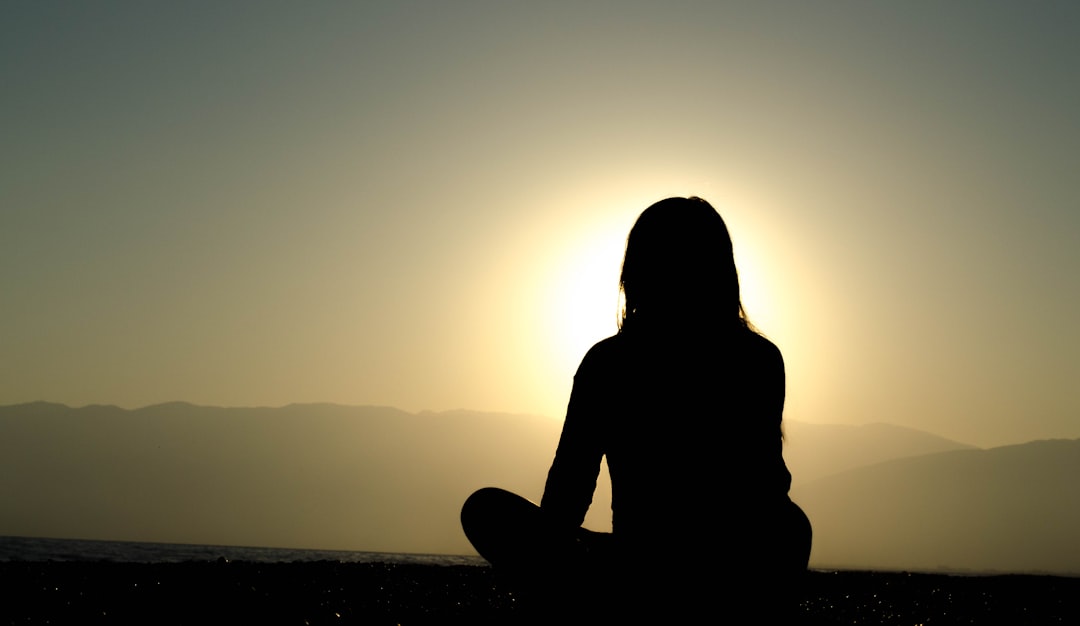University is filled with fun memories and great laughs. At the same time, it comes with stress. Lots of stress. Many students sweep these feelings under the rug because they aren’t sure how to cope with them. Self-care is a great way to prioritize your mental health and learn which strategies work for you. Here are ten ways to get in touch with yourself through self-care!
1. Meditation

Meditation is a relaxation, focus, and breathing technique that helps to develop concentration, clarity and emotional positivity within the body and mind. Breathing techniques associated with meditation help to slow the rhythm of the heartbeat and bring the body to a calmer state.
Focus and concentration can also be increased through meditation practices, which many people with anxiety struggle with. For students who feel stressed, meditation can provide peace of mind. Beginner meditators may want to try apps such as Headspace to start on the journey to better self-care.
2. Get Outside
The phrase “stop and smell the roses” has more truth in it than you know. Science has shown that the scents of pine, lavender and other plants can invoke a state of relaxation. When feeling anxious or stressed, many people have changing energy levels. Getting outside has been scientifically proven to balance energy levels in the body, creating a relaxed and levelled state.
Getting outside into the sunshine can also help stressed students. Sitting in the library for a week with minimal sunlight can actually impact your energy levels and mood due to lack of vitamin D. Increasing your outdoor activity and exposure to sunlight can help to alleviate stress and provide the body with much-needed vitamin-D.
3. Essential Oils
Essential oils are oils extracted from plants or flowers in their purest form. The “essence “of a plant is what gives it its smell and, when extracted, this becomes an essential oil. The strong fragrance of essential oils activates areas of your brain, nervous and limbic systems. Scientists also believe essential oils can activate the hypothalamus to produce a feel-good chemical called serotonin.
Essential oils are applied to the skin, in areas like the inner wrist, back of the neck and temples. Depending on the type of oil and fragrance, essential oils can be used to aid stress, increase energy, improve sleep and promote relaxation. No matter how stress affects you, there is probably an essential oil to help.
4. Exercise
Some of us may not enjoy getting sweaty in the gym, but exercise has actually been scientifically proven to aid with stress reduction. Physical activity can boost your body’s endorphins, which give you energy and alertness.
Exercise also allows the body to expel excess energy and adrenaline, and if done on a regular basis can reduce the overall feeling of perceived stress and allow for better sleep. Exercise can also increase serotonin levels, which can boost overall mood and feelings of alertness. Not only will this form of self-care reduce your stress, it will also give you a rockin’ body.
5. Drink the Stress Away
No, I’m not suggesting you go to your local bar and get a drink every time you feel stressed. Instead, herbal supplements such as tea and magnesium can help. Herbal teas like peppermint and chamomile have sedative chemicals that bring the body into a realm of calm and relaxation. These teas can be used to help reduce stress, anxiety and, when taken in higher doses, insomnia.
Another great drink to try for reducing anxiety is a magnesium supplement. Magnesium powder is mixed with water to create a drinkable supplement. Most people have a deficiency of magnesium, which can increase the severity of depression, anxiety and insomnia. Taking a magnesium supplement will allow your body to better absorb vitamins, aiding in stress and anxiety reduction.
6. Journaling
Stress and anxiety can be a scary topic that some people feel uncomfortable talking about. Journaling can help you make sense of your feelings and situations. Although you may not be expressing your feelings to a person, journaling can allow you to express how you are feeling through a creative outlet.
Journaling can also allow you to examine how you feel by writing down exactly what you feel. This self-reflection of feelings and emotion can allow you to analyze how you want to go about a situation or changes you’d like to make.
7. Talk it Out
As mentioned above, there are many ways to go about dealing with the feeling of stress or anxiety on an individual level. For people who are struggling to cope, talking to someone can help you on the path towards better mental health and wellbeing.
Speaking to professionals can also allow you to get support and advice on how to move forward with reducing your levels of stress. It can also lift a weight off your shoulders knowing you have someone to confide in.
Whether its a friend or a professional, vocalizing your feelings and thoughts will allow you to reflect on how you feel and why you may feel this way.
8. Prioritize Your Sleep
Sleep is one of the most important elements for well-rounded health, mental clarity and physical well-being. Lack of sleep can greatly impact your ability to process feelings of stress and anxiety. Getting proper amounts of sleep allows your body to handle feelings of stress and anxiety. Sleep is crucial as it allows the body to relieve physical and mental stress from the day.
Lack of proper sleep can also cause fluctuations in hormones, makings you irritable and stress much harder to deal with. Getting into a nightly routine, using calming sleep exercises such as meditation, or taking a power nap can get you on the right track to sleeping more and stressing less.
9. Add Bubbles
Bathing has been a ritual form of relaxation in Ancient Greek, Middle Eastern and Japanese cultures for thousands of years. When used in combination with essential oils or salts, a normal bath can become your key to relaxation. Soaking in a hot bath allows the body to sweat and expel toxins from the skin. Hot baths also allow your blood vessels to dilate, removing lactic acid from the muscles, and they lower blood pressure, relieving any tension caused by stress.
Additives like lavender, sage or sandalwood can be added to hot baths to increase relaxation and healing properties. All three of these elements work to reduce feelings of perceived stress and bring the mind into a state of relaxation. So next time you’re feeling stressed, try a relaxing hot bubble bath to ease the mind. You may just find that it does the trick.
10. Use a Planner
Unlike a journal which is used for personal reflection, a planner helps organize the days, weeks, and months ahead. Oftentimes we feel overwhelmed due to an overload of work. Using a planner to track due dates and assignment deadlines can help you to stay on top of your workload.
Another way to use a planner is to plan what work you intend to do and when you intend to do it. This ensures that you tackle one task at a time instead of spreading yourself too thin.
Planners can also include monthly or weekly goals that allow you to be a proactive and organized student. Planning can be particularly helpful for students who often feel overwhelmed, stressed or anxious.
Prioritizing your mental health has never been more important than in today’s highly competitive world. These ten self-care tips will set you on the path to a more stress-free life and a healthier, happier you.











